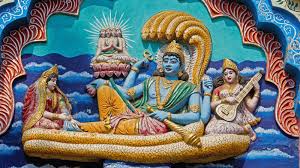EKADASI, from Sanskrit ekadasa; eka(one)+ dasa (ten) meaning eleven, is the eleventh day of the lunar fortnight, in both its dark and light halves. Among Vaisnavite Hindus, ehkadasi also harivasar (lit. Visnu`s day) is a day of fasting. Partaking of food in any form on this day is considered a sin, while observing a fast on this day is believed to be meritorious. In the Sikh system no special sanctity attaches to any particular day, nor any demerit. As says Guru Amar Das, Nanak III: The fifteen lunar days, seven days of the week, Months and seasons repeat themselves endlessly; So do the days and nights.
That is how the world goes. Coming and going is by the Creator`s Will; The Creator alone is truth immutable. (GGS, 842) According to Guru Nanak, a true Ekadasi is observed by him who lodges the One in his heart and who eschews violence and worldly allurements. Engrossed in superstition, one does not perceive the essence .In the same tone is Guru Arjan`s verse in the Gaun measure: On Ekadasi see God by your side, Controlling your passion, listen to the Lord`s praise. Let contentment reside in your heart and compassion for all living beings; Thus will your brata be fulfilled. (GGS, 299)
References :
1. Sabadarth Shri Guru Grandh Sahib.Amritsar, 1964
Ekadasi in Hindu Mythology and Quotes in Guru Granth Sahib
Ekadasi, observed on the eleventh lunar day of each fortnight in the Hindu calendar, is a significant day of fasting and devotion in Hindu tradition. Known for its spiritual importance, Ekadasi is considered a time to purify the mind and body, seek divine blessings, and progress on the path of self-realization. The concept of Ekadasi transcends Hinduism and resonates in Sikh scripture as well, emphasizing universal principles of devotion and discipline.
Ekadasi in Hindu Mythology
In Hindu mythology, Ekadasi holds a special place as a day dedicated to Lord Vishnu. It is believed that on this day, the human mind achieves greater focus and clarity, making it easier to connect with the Divine. The Padma Purana and other Hindu scriptures describe Ekadasi as an opportunity to cleanse sins and attain liberation (moksha).
One of the well-known legends surrounding Ekadasi is the story of King Ambarisha, a devout follower of Lord Vishnu. When Sage Durvasa tested the king’s unwavering devotion by interrupting his Ekadasi fast, divine intervention saved him, highlighting the power of devotion practiced with sincerity and discipline.
Ekadasi fasting is not just about abstaining from food; it emphasizes surrender to God, self-control, and detachment from material pleasures. Traditionally, devotees avoid grains and focus on spiritual activities such as chanting, prayer, and scripture reading.
Quotes in Guru Granth Sahib
The Guru Granth Sahib, while not specifically mentioning Ekadasi, refers to fasting and devotion as means to cultivate a deeper spiritual connection. It emphasizes the importance of sincerity in worship over mere ritualistic practices. For example:
- The scripture states that true fasting is achieved when one restrains their ego and purifies their heart.
- It cautions against hollow observances, urging devotees to live a life of truth, compassion, and remembrance of God.
The Guru Granth Sahib’s teachings align with the essence of Ekadasi by underscoring devotion, humility, and ethical living as the pillars of spiritual growth.
Shared Lessons
Ekadasi’s emphasis on discipline, self-control, and spiritual focus resonates deeply with the principles found in the Guru Granth Sahib. Both traditions highlight the transformative power of devotion in overcoming worldly distractions and achieving inner peace.



